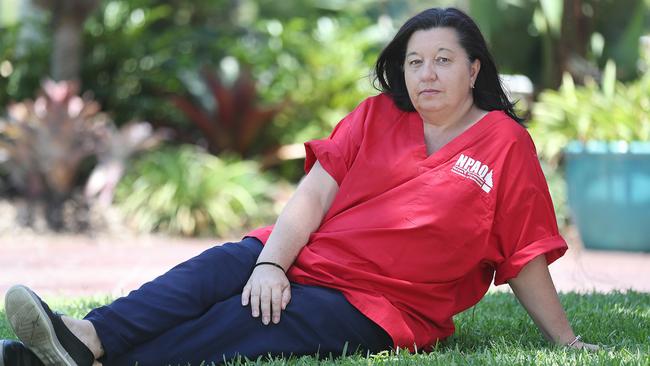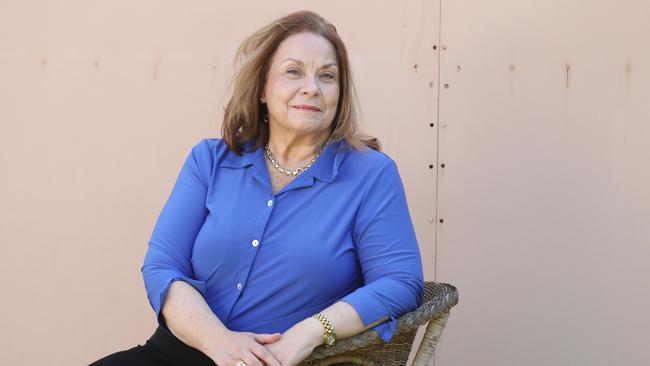Union claims nursing sector in crisis as graduates finish training unable to do basic tasks
The ‘dumbing down’ of nursing degrees has been blamed as students nearing the end of their training struggle to perform even the most basic tasks like calculating medication doses and taking blood pressure.
QLD News
Don't miss out on the headlines from QLD News. Followed categories will be added to My News.
STUDENT nurses nearing the end of their training are unable to perform basic tasks such as calculate medication doses, set up IVs or take blood pressure, leaving them flailing in high-pressure hospital wards.
Explosive claims by the Nurses Professional Association of Queensland highlight the career is in crisis and some graduates are declaring their $20,000 nursing degrees are worthless.
The union says the “dumbing down” of bachelor of nursing degrees means necessary practical skills are missing, knowledge of anatomy is poor and patient interaction often appalling, posing serious risk not only to patients but to the students themselves who are filled with anxiety and fear.
QNMU CHALLENGED BY UPSTART NPAQ
QLD NURSES AND MIDWIVES UNION CALLS FOR URGENT EMERGENCY DEPARTMENT REVIEW
Veteran nurses report that many registered nurse trainees lack the stamina for a busy shift in today’s hospitals that have fast turnover of patients and some have no more knowledge of health conditions than the patients themselves.
The Queensland Nurses and Midwives Union says that the problem lies with the lack of time available for experienced clinicians to act as mentors and instructors to students on clinical placement and to nurses at other stages of practice development.

“That is the systemic fix we need far more than any tinkering with the educational preparation program,” QNMU assistant secretary Sandra Eales told The Sunday Mail.
The QNMU insists that nursing work is at the core of why hospitals exist and nurses are not “bottom rung”.
The Nurses Professional Association of Queensland was set up five years ago as an alternative to the QNMU.
It is not a registered industrial body but has close to 4000 members.
Phill Tsingos is a clinical nurse in the emergency department of a Queensland hospital. He has been nursing for 27 years and is a supervisor to student nurses, and is very concerned about the level of nurse education.
“I have worked with students who were doing a bachelor of nursing and gained access to the degree with an OP 20. I see some in their third year and am stunned at times over the lack of knowledge.
“Don’t get me wrong, we have some great young people but the general standard is not up to scratch,” he said.
“Many do not know how to spike an IV fluid bag or calculate medication doses when they are at the end of their degree.
“Patients often know more about health conditions than the students.
“I would struggle to trust some of the students.”

Mr Tsingos says student nurses need more on-the-job experience rather than being stuck in a classroom learning the difference between private and public hospitals.
“The universities are turning out a glut of nurses, many of whom have little chance of getting a job,” he said.
“One girl went for an interview for one of 30 jobs in Brisbane and there were 900-plus vying for the positions.
“The whole sector needs an overhaul.”
State Health Minister Steven Miles says he is disappointed to hear an association talk down the skill set and studies of nurses.
“We have highly trained and hardworking nurses and midwives employed in our public hospitals,” he said.
“There are many rural areas in Queensland that are struggling to recruit nurses and midwives.
“The National Graduate Outcomes Survey suggests that 90.4 per cent of graduate nurses were employed in 2019 and 91.5 per cent in 2018.”
Tertiary education, including university places, are the responsibility of the Federal Government. Flagging the need for change, an independent national review Educating the Nurse of the Future has just been completed and the final report, taking into consideration 83 submissions, has been presented to federal Health Minister Greg Hunt.
The report will be considered by government and a plan for public release developed soon.
The review was announced as part of the 2018-19 Federal Budget.
Ms Eales says there is no evidence of admissions to nursing with OP 20s.
“Skills acquisition within the workplace, both practical and theoretic, is as important as classroom or simulated learning environments,” she said. “Professional Practice Environment is key to ensure safe learning at all levels and stages of nursing practice development.”
NPAQ founding director Graeme Haycroft says if there is a shortage of nurses their value goes up.
“The first responsibility of any union is to ensure there is a ‘small’ shortage of your member base skills,” he said. “If there is a shortage of nurses wages go up in response.”
Mr Haycroft says there has been an ongoing campaign by the QNMU to constantly train and recruit more nurses to the point that there is a glut.
“There are thousands and thousands of three-year degree nurses who will never get a fourth and final grad year enabling them to become a trained nurse who can start on the bottom rung in a hospital,” he said.


